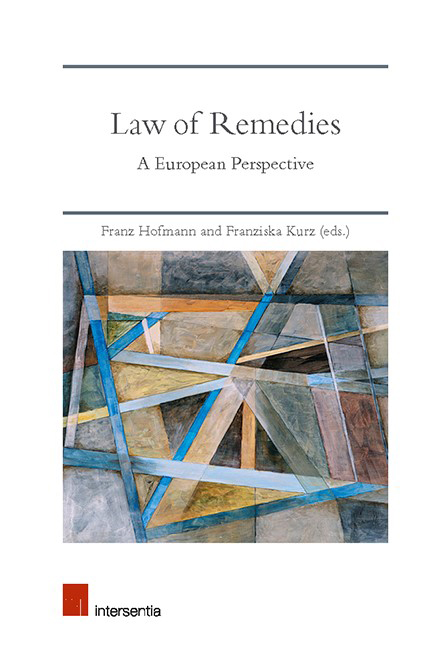Book contents
- Frontmatter
- Contents
- List of Cases
- List of Authors
- PART I THE ISSUE OF REMEDIES
- PART II MECHANISMS OF ENFORCEMENT
- PART III FUNCTIONS OF REMEDIES
- PART IV UNDERLYING PRINCIPLES
- Common Principles of Damages in EU Private Law?
- A Manifesto on Proportionality and Copyright Law: ‘Taking Remedies Seriously’
- Asking Innocent Third Parties for a Remedy: Origins and Trends
- PART V REMEDIES IN CONTRACT LAW AND INTELLECTUAL PROPERTY
- Index
- About the Editors
Common Principles of Damages in EU Private Law?
from PART IV - UNDERLYING PRINCIPLES
Published online by Cambridge University Press: 09 November 2019
- Frontmatter
- Contents
- List of Cases
- List of Authors
- PART I THE ISSUE OF REMEDIES
- PART II MECHANISMS OF ENFORCEMENT
- PART III FUNCTIONS OF REMEDIES
- PART IV UNDERLYING PRINCIPLES
- Common Principles of Damages in EU Private Law?
- A Manifesto on Proportionality and Copyright Law: ‘Taking Remedies Seriously’
- Asking Innocent Third Parties for a Remedy: Origins and Trends
- PART V REMEDIES IN CONTRACT LAW AND INTELLECTUAL PROPERTY
- Index
- About the Editors
Summary
INTRODUCTION
The action for damages has always been an important, if not the most important remedy in private law. Based on the concept of reparation, and, more fundamentally, on the pursuit of justice, one can go back as far as ancient Greek philosophy to find ‘a discussion of reparation, extending beyond the criminal law, for all damage inflicted’. It is therefore not surprising that the action for damages is an important remedy also in EU private law. However, as EU private law has not been designed as a complete codification of the law, but rather developed as a fragmentary compilation of regulations, directives, and case law in different substantive fields, it may be asked whether it is possible to identify common principles of damages in EU private law. Is there something like an EU law of damages, or are there several EU laws of damages, possibly as diverse and numerous as there are areas of substantive EU law? In order to approach this question, this chapter will briefly describe the status quo on EU rules on damages and introduce three selected developments in this field (2.). On this basis, it will approach the core issue whether there is and/or should be common principles of damages in EU private law (3.), before outlining, using the example of the definition of damage, how specific such common principles can be (4.). In conclusion, some consequences of the analysis of damages for a possible law of remedies at the EU level shall be described (5.).
DAMAGES AS A REMEDY IN EU PRIVATE LAW
STATUS QUO
First, looking at the status quo: Where can rules on damages in EU law be found, and how do they relate to each other?
Sources
As a starting point to answer the first question, three potential sources of damages claims in EU law can be identified. First, the existence of an action for damages can be an (unwritten) requirement that results from the principle of effectiveness. In this situation, one is faced with a substantive right established by (either primary or secondary) EU law, but Union law does not provide any (or no complete set of) remedies or sanctions if this right is infringed.
- Type
- Chapter
- Information
- Law of RemediesA European Perspective, pp. 197 - 222Publisher: IntersentiaPrint publication year: 2019



